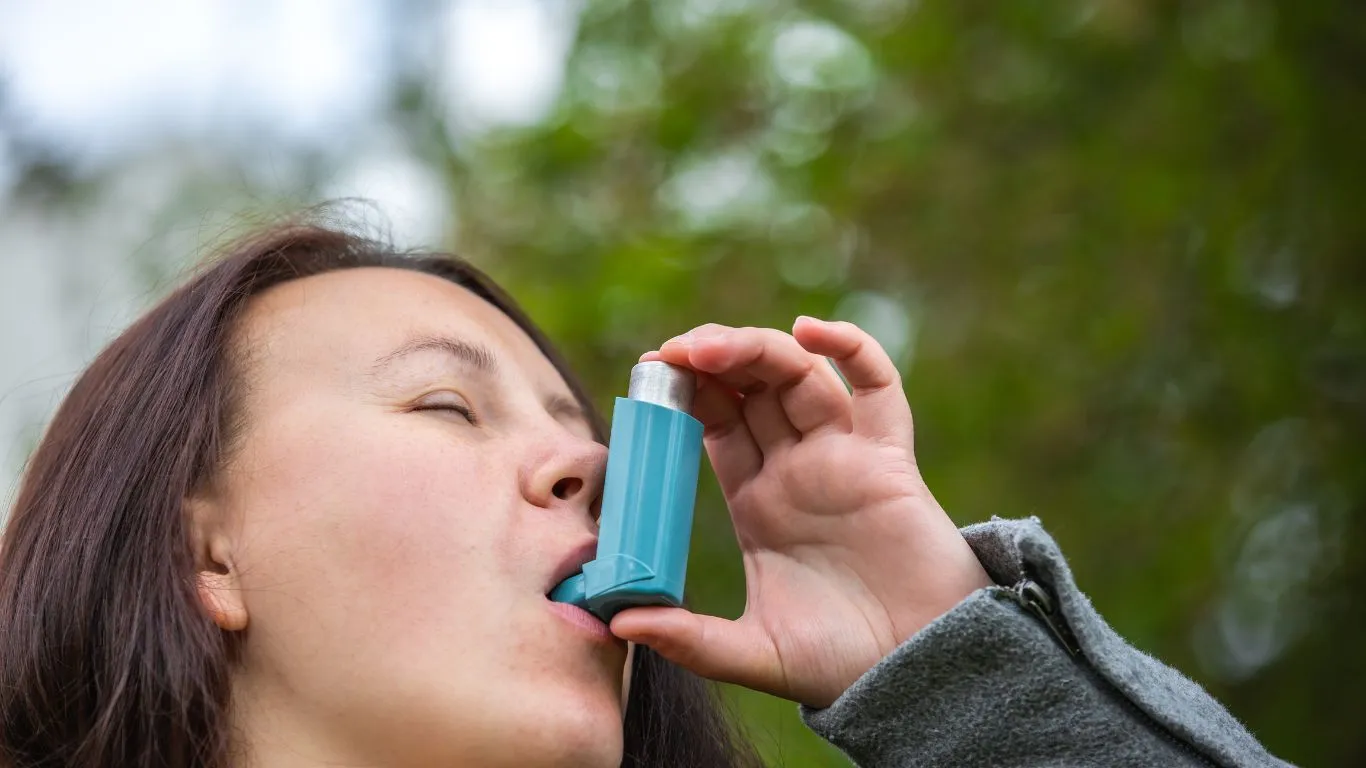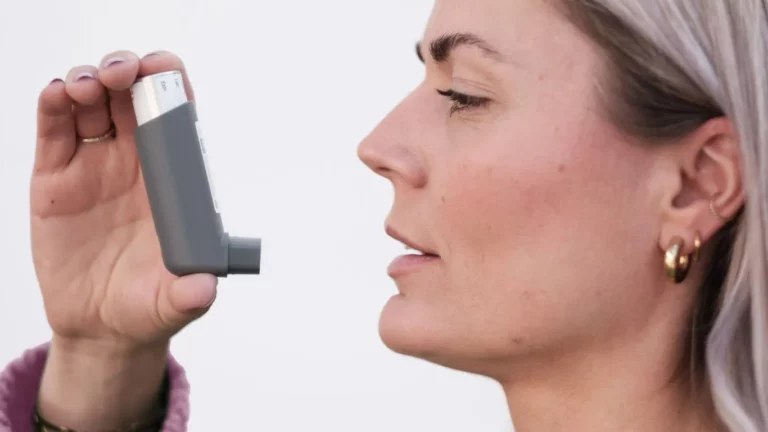Discover the Best Essential Oils to Diffuse for Asthma Relief
If you or someone you care about lives with asthma, you know how tricky managing those sudden breathing challenges can be. Over my years working as a pulmonary nurse practitioner, I’ve seen firsthand how patients are always looking for ways to complement their treatment — and one natural approach that keeps popping up is using essential oils. But not all oils are created equal, especially when it comes to asthma. That’s why I want to share some insights on the best essential oils to diffuse for asthma that can help soothe airways and support easier breathing, without replacing your medical care. Think of this as a friendly chat from one lung health advocate to another.
Why Consider Essential Oils for Asthma?
Before diving into which oils I recommend, it’s important to understand why essential oils might help with asthma symptoms at all. Diffusing certain oils can create a calming atmosphere, reduce stress, and potentially ease airway inflammation — all key factors for those with asthma. I’ve seen patients report fewer episodes of tightness or coughing when incorporating gentle, asthma-friendly oils into their routine. Of course, essential oils are never a replacement for prescribed inhalers or medications, but they can be a supportive addition to your overall asthma management.
One personal story comes to mind: a patient struggling with nighttime asthma symptoms found that diffusing a particular blend helped them sleep better, which was a huge win for their quality of life. Little lifestyle tweaks like this can make a noticeable difference, and I love helping people discover those safe, natural options.
Things to Keep in Mind When Using Essential Oils with Asthma
- Patch test first: Some people with asthma or sensitive airways may react negatively to certain oils, so always test a small amount first.
- Use a diffuser: Never apply oils directly on your skin or inhale undiluted oils. Diffusing is the safest method.
- Start slow: Introduce one oil at a time, and monitor how your body responds.
- Consult your healthcare provider: Always check with your doctor or nurse practitioner before adding anything new to your routine.
- Quality matters: Choose 100% pure, therapeutic-grade oils from reputable sources to avoid synthetic additives or contaminants.
The Best Essential Oils to Diffuse for Asthma Relief

From my experience and the latest research, here are some of the top essential oils that many people with asthma have found helpful when diffused:
1. Lavender
Lavender is hands down one of the most popular essential oils for respiratory support. It’s well-known for its calming and anti-inflammatory properties, which can help relax the muscles around your airways. I’ve had patients tell me that lavender’s soothing aroma helps reduce anxiety-related asthma attacks and promotes better sleep — a huge plus if your asthma flares up at night.
2. Eucalyptus
Eucalyptus oil is a classic choice when it comes to breathing issues. It contains a compound called eucalyptol that can help clear mucus and ease congestion. That said, it’s a bit stronger than lavender, so start with small amounts. I always remind people that while eucalyptus can be a game-changer, it’s important to use it cautiously if you have sensitive lungs.
3. Peppermint
Another favorite in my practice is peppermint oil. It has menthol, which creates a cooling sensation and may help open up tight airways. Diffusing peppermint can invigorate your senses and provide quick relief when you feel your breathing tightening. Just a heads-up: peppermint is powerful, so keep it diluted and observe how your lungs respond.
4. Frankincense
Frankincense is a lesser-known but increasingly popular essential oil for asthma. It has anti-inflammatory benefits and can support lung health by reducing swelling and irritation in the respiratory tract. I personally appreciate how it gently promotes relaxation and can be paired well with lavender for an even more soothing effect.
How to Safely Diffuse Essential Oils if You Have Asthma

Getting the benefits of these oils requires a bit of care, especially if your lungs are already sensitive. Here’s a quick checklist I share with my patients:
- Choose the right diffuser: Ultrasonic diffusers are gentle and disperse oils in a fine mist without heat, which helps preserve the oil’s therapeutic qualities.
- Limit diffusion time: Start by diffusing for 15–30 minutes and see how you feel. Too much exposure might irritate your lungs.
- Ventilate the space: Make sure the room is well-ventilated so the scent doesn’t become overwhelming.
- Observe your body’s reaction: If you notice coughing, wheezing, or any discomfort, stop immediately and open windows for fresh air.
Trust me, it’s better to be cautious and build up tolerance slowly. Your lungs will thank you for it.
More Essential Oils That Can Support Asthma Care

As I mentioned earlier, not all essential oils are ideal for those with asthma — some can actually trigger symptoms. But beyond the staples like lavender, eucalyptus, peppermint, and frankincense, there are a few other oils I’ve seen patients use safely and effectively. Of course, personal sensitivity varies, so tread carefully and always listen to your body.
5. Chamomile
Chamomile is a gentle, soothing oil that can calm irritated airways and promote relaxation. Its anti-inflammatory and antispasmodic properties make it a nice option for people who experience coughing fits or nighttime asthma symptoms. Personally, I’ve recommended chamomile to several patients who struggle with sleep disruptions due to their asthma — it’s like a lullaby in a bottle!
6. Rosemary
Rosemary oil has a long history in respiratory care. It contains cineole, similar to eucalyptus, which helps clear congestion and supports clearer breathing. However, rosemary is more potent, so use it sparingly and always dilute it in a diffuser rather than applying topically. One thing I’ve noticed in practice is that patients appreciate rosemary’s fresh, herbal scent during the cold and flu season when asthma symptoms tend to flare.
7. Ginger
Ginger isn’t the first oil that comes to mind for asthma, but it’s gaining traction thanks to its anti-inflammatory effects. Diffusing ginger oil can help reduce airway inflammation and improve circulation, potentially easing breathing difficulties. I like to suggest it to patients who want a warm, spicy aroma that also has therapeutic benefits. Just be sure to combine it with milder oils like lavender or chamomile to keep the scent balanced and non-irritating.
Essential Oils to Avoid If You Have Asthma

While exploring the best essential oils to diffuse for asthma, it’s just as important to know which oils can cause more harm than good. From my years of clinical experience and research, here are some oils you’ll want to steer clear of:
- Pine and Fir Oils: These can be irritating to sensitive lungs and often trigger coughing or wheezing.
- Cinnamon and Clove: Although they smell wonderful, their strong, spicy nature can worsen airway inflammation.
- Oregano: This oil is powerful and can be an irritant, especially for those with asthma.
- Pepper and Thyme: Similar to oregano, they’re too intense and may provoke respiratory discomfort.
- Any synthetic or heavily adulterated oils: Poor quality oils often contain chemicals that can worsen asthma symptoms, so always choose pure, trusted brands.
In my practice, I emphasize how crucial it is to listen to your lungs. Even oils deemed safe by many can affect individuals differently. If you notice any irritation, coughing, or tightness, stop using the oil immediately and consult your healthcare provider.
Tips for Creating Your Own Asthma-Friendly Essential Oil Blends

One of the joys of essential oils is the ability to customize blends that suit your personal preferences and needs. Based on what I’ve seen and recommended, here are some blend ideas to get you started with asthma-safe oils:
- Relaxing Night Blend: 3 drops lavender + 2 drops chamomile + 1 drop frankincense. Perfect for calming the mind and soothing airways before bed.
- Clear Breathing Blend: 2 drops eucalyptus + 2 drops peppermint + 1 drop rosemary. Helps open nasal passages and refresh the senses (use sparingly).
- Gentle Daytime Blend: 3 drops frankincense + 2 drops chamomile + 1 drop ginger. Supports steady breathing and a calm mood throughout the day.
When mixing, always use a diffuser designed for essential oils and avoid overloading the water reservoir with too many drops — less is often more. I also recommend keeping a journal of which blends work best for you and any reactions you notice. Over time, you’ll develop a personalized toolkit that fits your lifestyle and lung health needs.
Real Talk: What I’ve Learned From Patients Using Essential Oils
It’s easy to get caught up in the hype around essential oils, but from my perspective, grounded in years of clinical work, the real success stories come from those who approach these oils with respect and caution. I’ve met many people who swear by their diffusers as a complement to their inhalers and medications — and their stories always highlight a few common themes:
- Patience: Benefits don’t always happen overnight. It often takes days or weeks of consistent use to notice subtle improvements.
- Safety First: Careful selection of oils and mindful use prevents flare-ups rather than causing them.
- Holistic Care: Essential oils are just one piece of the puzzle. Good asthma control includes medications, avoiding triggers, and overall healthy habits.
- Empowerment: Finding natural tools that complement medical treatments often helps patients feel more in control of their health.
In the end, using essential oils thoughtfully can add a comforting, supportive layer to your asthma care routine. And as always, your healthcare team — including pulmonary specialists and nurse practitioners like myself — is here to guide you safely along the way.
Integrating Essential Oils Into Your Asthma Management Plan

Now that we’ve covered the best essential oils to diffuse for asthma, plus how to safely use them and which ones to avoid, let’s talk about how to actually fit this into your day-to-day asthma management. From my experience as a pulmonary nurse practitioner, the key is to treat essential oils as an adjunct, not a replacement. Your inhalers, medications, and asthma action plan are your frontline defense, and essential oils can be a gentle, supportive sidekick.
Here’s how I typically guide my patients in weaving essential oils into their routine:
- Start Slow and Observe: Diffuse for short periods at first — say 15 to 20 minutes once or twice daily — and keep a close eye on how your breathing reacts. If you feel any discomfort, stop and reassess.
- Match Oils to Your Needs: Use calming oils like lavender and chamomile when you want to relax or sleep better, and more clearing oils like eucalyptus and peppermint during flare-up prevention or congestion relief.
- Create a Consistent Routine: Incorporate diffusion sessions around the same times daily, such as before bedtime or after waking, to help your lungs and mind associate the scent with relaxation and improved breathing.
- Keep Your Environment Clean: Make sure your diffuser is cleaned regularly to prevent mold or bacteria build-up, which could irritate asthma symptoms.
Personally, I encourage patients to think of essential oils as part of a holistic approach—alongside proper medication, trigger avoidance, breathing exercises, and a healthy lifestyle. When everything works together, asthma symptoms can become more manageable, and your quality of life improves significantly.
Common Questions About Essential Oils and Asthma

Can essential oils trigger asthma attacks?
Yes, they can if used improperly or if the oils are irritating to your lungs. That’s why it’s crucial to start slowly, use diluted oils, and monitor your reaction carefully. Not everyone reacts the same way, so personal experience matters most.
Are there any oils completely safe for everyone with asthma?
Unfortunately, no. Even commonly recommended oils like eucalyptus or peppermint can cause irritation for some people. Always test cautiously and consult with your healthcare provider before starting essential oil diffusion.
How do I choose a high-quality essential oil?
Look for oils labeled 100% pure, therapeutic grade, and sourced from reputable brands. Avoid synthetic fragrances or oils with fillers. If possible, research the company’s extraction methods and customer reviews. High quality means safer and more effective.
Can I use essential oils instead of my inhaler?
Absolutely not. Essential oils are supportive and should never replace prescribed asthma medications. Always follow your asthma action plan and discuss any complementary treatments with your healthcare provider.
Wrapping Up Your Journey With Essential Oils and Asthma
Working with asthma means balancing careful medical management with lifestyle choices that promote lung health. Essential oils can be a valuable tool in that toolbox when used thoughtfully and safely. From calming lavender to clearing eucalyptus, these oils can help ease your breathing environment and support your wellbeing.
Remember, each person’s asthma is unique, so what works well for one might not work for another. Always prioritize safety, stay in touch with your healthcare team, and use essential oils as part of a wider asthma care plan. Over time, you might find that a few gentle drops in a diffuser add just the right touch of relief and comfort.
References
Disclaimer
This article is for informational purposes only and does not replace professional medical advice, diagnosis, or treatment. Always consult your healthcare provider before starting any new treatment or therapy, including the use of essential oils. Essential oils may cause allergic reactions or respiratory irritation in some individuals, especially those with asthma or other respiratory conditions. Use with caution and discontinue use if adverse effects occur.

Bianca Nala is a compassionate Nurse Practitioner with a strong background in primary and respiratory care. As a health writer for Healthusias.com, she combines her clinical expertise with a talent for clear, relatable storytelling to help readers better understand their health. Bianca focuses on topics like asthma, COPD, chronic cough, and overall lung health, aiming to simplify complex medical topics without losing accuracy. Whether she’s treating patients or writing articles, Bianca is driven by a single goal: making quality healthcare knowledge accessible to everyone.






